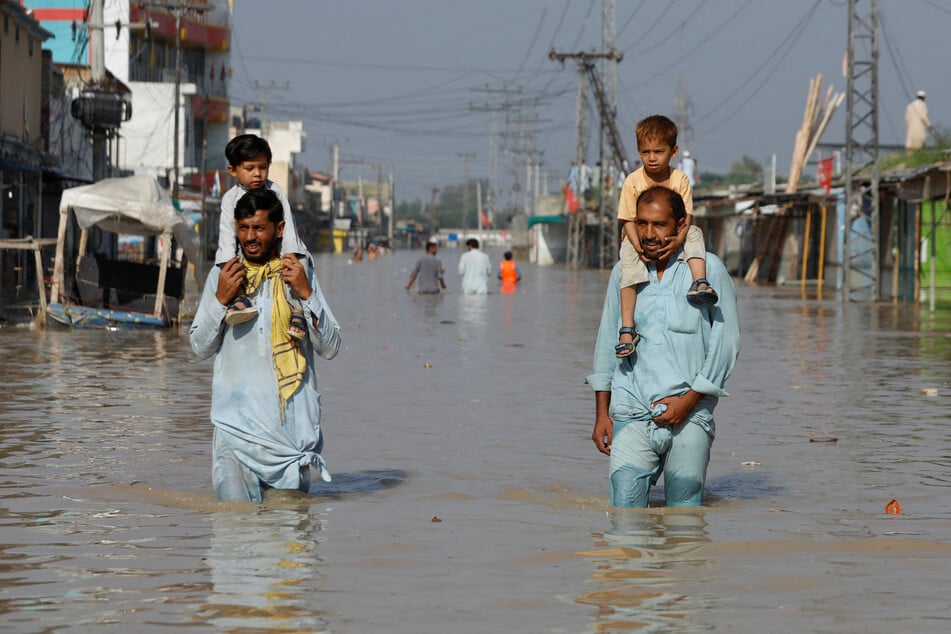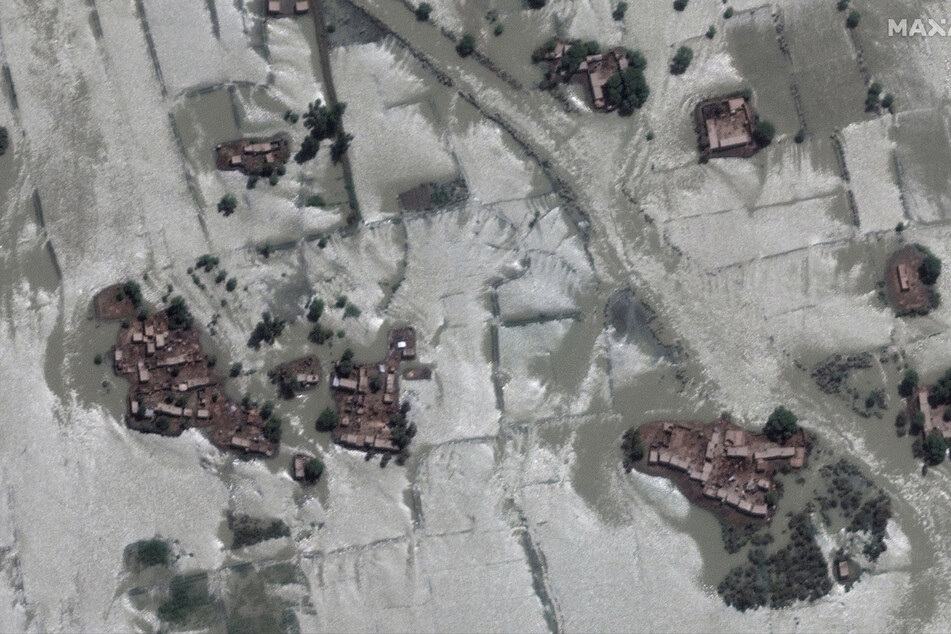Pakistan continues to struggle with catastrophic flooding as death toll rises
Islamabad, Pakistan - Catastrophic flooding in Pakistan has left the cash-strapped country counting its dead, while struggling to rescue and care for millions of people displaced by surging waters.

The National Disaster Management Authority (NDMA) said on Wednesday that 1,162 people, including 384 children and 231 women, had died due to flooding since mid-June. The numbers are expected to further increase in the coming days.
More than 33 million people in some 116 of Pakistan's 160 administrative districts have been affected by the floods, with at least 72 districts being declared disaster areas.
Hundreds of thousands of people are currently living without food, clean water, shelter and basic medicines.
The floods inundated over two million acres of agricultural land, destroying crops of cotton, rice, dates, tomatoes, chili peppers, and other vegetables.
In addition, more than 730,000 cattle have also been killed so far by the raging floods. Livestock is a lifeline for the rural population and a source of income for more than eight million people.
The water has damaged more than one million houses, over 3000 miles of roads, and 243 bridges, according to the latest reports.
Food and vegetable prices in the country have skyrocketed after crops on thousands of hectares of land were lost in recent weeks.
The situation prompted the government to consider lifting a ban on trade with India and allowing the import of vegetables and other foodstuffs, but officials fell short of taking any decision.
Pakistani PM appeals for help in the face of climate change effects

Prime Minister Shehbaz Sharif urged the developed world not to leave countries like Pakistan, which is responsible for less than 1% of the world's carbon emissions, at the mercy of climate change.
"If it is us today, it can be somebody else tomorrow. Threat of climate change is real, potent & staring us in the face," Sharif tweeted.
According to Pakistan’s planning minister, the flooding has already inflicted around $10 billion in losses to Pakistan's economy, which has long been struggling due to high current account and fiscal deficits and chronic energy shortages.
The minister said it will take at least five years to rebuild lives of those hit by the floods.
On Tuesday, the United Nations issued a flash appeal for $160 million in emergenc
y aid to help.
"Pakistan is awash in suffering," UN Secretary General António Guterres, who is due to visit Pakistan next week, said in a video message at the launch of the appeal.
Plane loads of international aid have started landing in Pakistan while several countries have pledged financial support.
US Secretary of State Antony Blinken has announced $30 million from the US for critical humanitarian assistance like food, safe water, and shelter.
Cover photo: REUTERS

